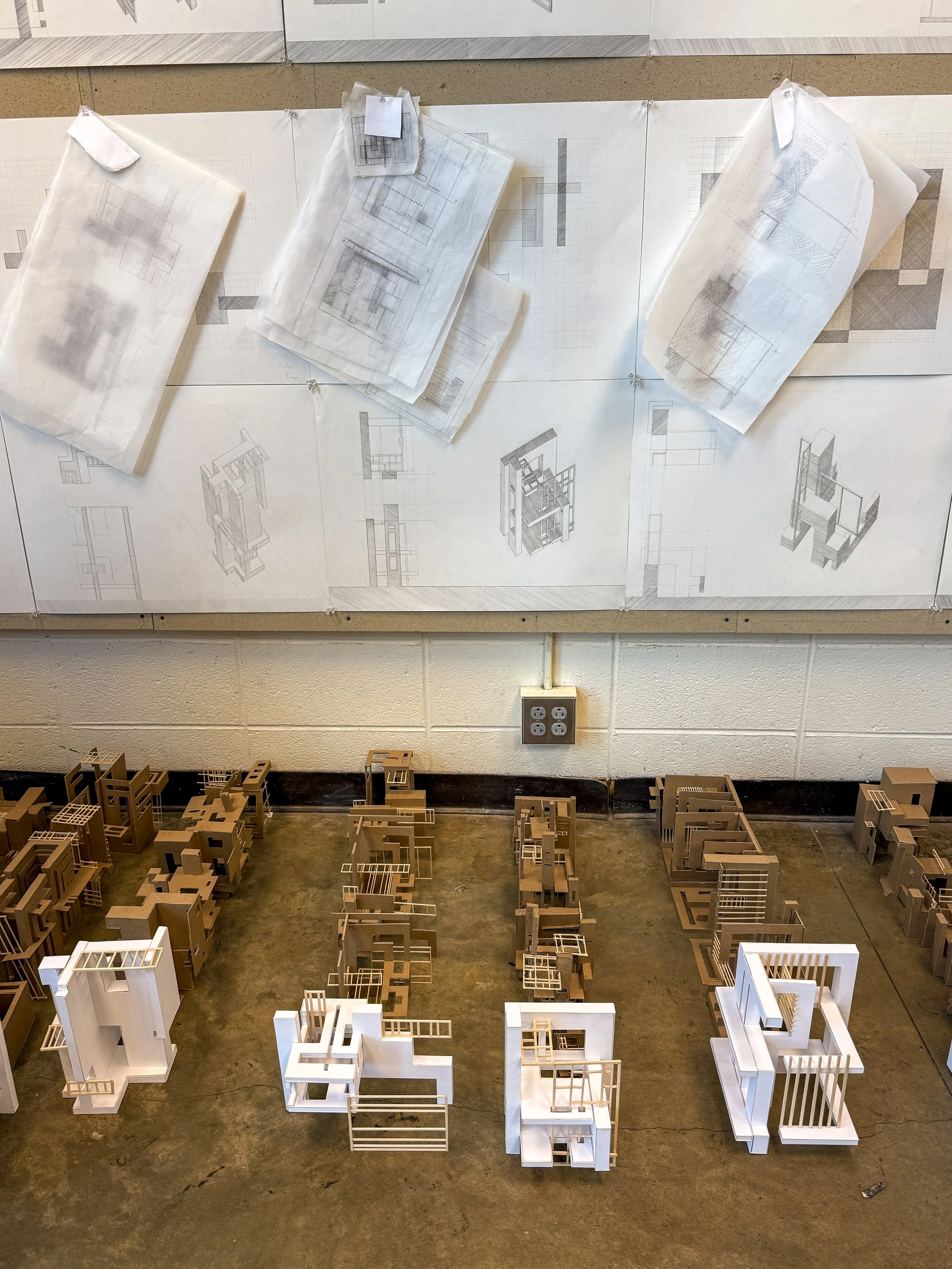Combating Atychiphobia: The Fear of Failure

I went into the summer semester so confidently, the thought of failing was never a reality… until it was.
My Story
Every summer, pre-Architecture majors at Auburn University compete against each other in an Architecture “art class,” professionally known as “Studio,” for the limited spots in the professional program. 100+ to start out with, less than half accepted. On paper, 9 A.M. to 5 P.M., Monday, Wednesday, Friday. In reality, 24 hours, 7 days a week. A granola bar for breakfast while I work, less than an hour for lunch, and half an hour for dinner, constantly working in between. I pulled multiple all-nighters finishing the final drawing, draft, and model to as best as possible before “pin-up,” the presentation of our projects, at 9 A.M. on the dot.
They said that as long as you love what you are doing, you will outlast all who drop before the mini semester ends and make the cut. I did love it. I do love what I did over the summer. I loved every second of it. Not only the projects with a beautiful blend of math and art, but the new friends I made. Even though it may sound like I never left Dudley Hall, I did. With my new group of friends, we went swimming and hiking in Chewacla State Park, played sand volleyball and basketball at the rec, cooked burgers for a pool party, and so much more. And the thought of not seeing any of them again was devastating to think about. For my career and for my friends, I needed to make it into the program!
I didn’t.
I didn’t make the cut. I failed. And that’s hard to admit. It’s scary to admit. I’m a self-diagnosed Atychiphobe!
This blog is the hardest I have ever had to write. Harder than making peppermint bark in October and driving all over the state of Alabama in search of candy canes, harder than researching about pianos or sandwiches, scheduling interviews with Veterinarians, Equestrian Coaches, or even the legendary Bruce Pearl. This is by far the hardest because, in a way, I am facing my Atychiphobia, my fear of failure, and in a way announcing my failure for the first time. When I first got cut, I hid my failure. I was embarrassed about it. Most of all, I was scared about it. It would be one thing if I quit on my own, but it’s another thing entirely being told no - being told that I can’t do my deepest passion. The plan I have had for the past 2-3 years of the following decade of my life went down the drain in an instant, and I had to choose a new major the very next day! Where does someone go from that? However, that is the gift wrapped in failure! I could go anywhere! Failure isn’t the end, it’s the beginning.
I learned a lesson when everything fell apart: Everything will be okay.
I was so stressed it was unhealthy. The reminder when I looked at a building’s design I liked, or a pattern on a gate similar to one I drew for one of my projects, or when I looked into my grandfather’s teary eyes knowing that Architecture was his grandson’s passion and that he couldn’t do it, it just made me want to fall to my knees and scream.
I was without a plan. My original backup major of Building Science, a career that lacks creativity, was no longer my best fit. Through the summer, I learned that I loved creativity, and I need it in my future career if my job would ever be exciting. Without the first half of the summer, I would never have known. Yet still, I scheduled meeting after meeting after meeting, scavenging for help and direction from my academic advisors, previous professors, and my Architecture Studio professors that saw my passion and devotion to my craft day in and day out for the past months. All I wanted to know was why? Why didn’t I make it? Why was my craft not good enough? But at the same time, I didn’t want to know. I knew it would only cause me to fall into a repetition of nightmares, hoping someone would invent a time machine and allow me to fix what I did wrong to avoid all this pain and all this fear. So, I left every meeting never asking the question of why. Instead, I moved on to asking the question of where I go from here. After meeting with the outstanding Auburn professors and advisors, I chose a plan I had previously dismissed: Environmental Design. I am now on track to graduate in August 2027 with a Bachelor of Environmental Design with a heavy focus on Architecture, two years before I would have graduated if I continued in the Architecture program. However, I still have a deep passion for architecture, so once I graduate, I plan to get my Master of Architecture. How long I will end up sticking to that plan, I don’t know. But one thing I do know is that everything will work out.
But what if failing was part of the plan all along? What if I was supposed to fail, as if God had written it in the script of the story of my life and I’m just but a leaf stuck floating wherever the wind blows. Failure in life is certain, so what can we do about it?
Tips for rebounding from failure
Before you can take the first step after failure, it’s important to recognize failure for what it truly is. The word “failure” in today’s society typically has a negative connotation. But failure shouldn’t be seen as solely negative. In fact, the majority of failures are actually positive. American Psychologist Carol Dweck points out the differences of two fundamental mindsets in work: a fixed mindset and a growth mindset. A fixed mindset believes that abilities and intelligence are unchangeable skills that can’t be improved. For example, believing you are bad at singing and being content with that. Oppositely, a growth mindset believes that abilities and skills can be developed through dedication and hard work. For example, believing you are bad at singing and thus taking voice lessons to improve your singing ability. I think we all can agree that every human on the earth is pursuing something, whether that is having the job of your dreams, gaining economic wealth, or living a fun and exciting life. Having a growth mindset is the only way to achieve your pursuit. With growth comes learning, and the best way to learn is to fail. Failure is a necessary stepping stone to success.
However, instead of helping, failure often hinders individuals. This I can attest to. There is always an emotional side to failure. There is shame, guilt, embarrassment, frustration, and fear. To combat negative emotions, what are some ways someone can emotionally cope with failure? First and foremost, you must acknowledge your emotions. It’s completely natural to feel disappointed, but don’t dwell on your emotions. You need to reflect without self-blame. You must remember that failure is a signal to grow rather than a verdict on ability.
Then take a step back. For me, that looks like taking a break, getting outside and going on walks in nature, working out, going on a run, or completing tasks like cleaning and organizing a space or completing a jigsaw puzzle.
Once you have taken your mind off of failure, identify what went wrong, focus on what you can learn, and adjust your approach. For me, that was a career shift that ultimately gets me to the same or even better position as an Architect with both a bachelor’s and master’s degree.
After failing, I like to create a new plan of action, but the majority of the time I still need a little help. For that reason, talking to mentors or a peer who can help you is extremely helpful.
Once a new plan of action is in place, give it your hardest effort to achieve the task despite any potential setbacks and failures.
Every time I communicated my skepticism of the need to change my approach to my Architecture project, one upper-class Architecture friend repeatedly hyped me up saying, “Albert Einstein. Leonardo Da Vinci. Pablo Picasso. Michelangelo. Elon Musk. NATHAN!” Replace my name with yours! YOU have potential to be great! No matter what failures you may face, roadblocks in your way, or forks in the road, through passion, dedication, and patience, you have the power! Go and change the world!
Be Well, Auburn.
Nathan was born and raised in Pearland, Texas after his parents evacuated New Orleans due to Hurricane Katrina. Except for a few distant cousins, Nathan and his twin brother are the first in their family to attend Auburn, with the entirety of his family being LSU alum. Nathan immediately fell in love with Auburn and began searching for ways to get involved on campus.
Nathan is a freshman majoring in Architecture and plans to minor in Marketing. When he isn’t in the Architecture studio constructing masterpieces till 2 A.M., you can find him running on campus, exploring nature, watching movies in his dorm room, or playing piano, guitar, or marimba.
In the years following graduation, Nathan plans to become a licensed architect and work at a firm in Texas or the Southeast. He hopes to improve low-income housing and create a more walkable city environment.




